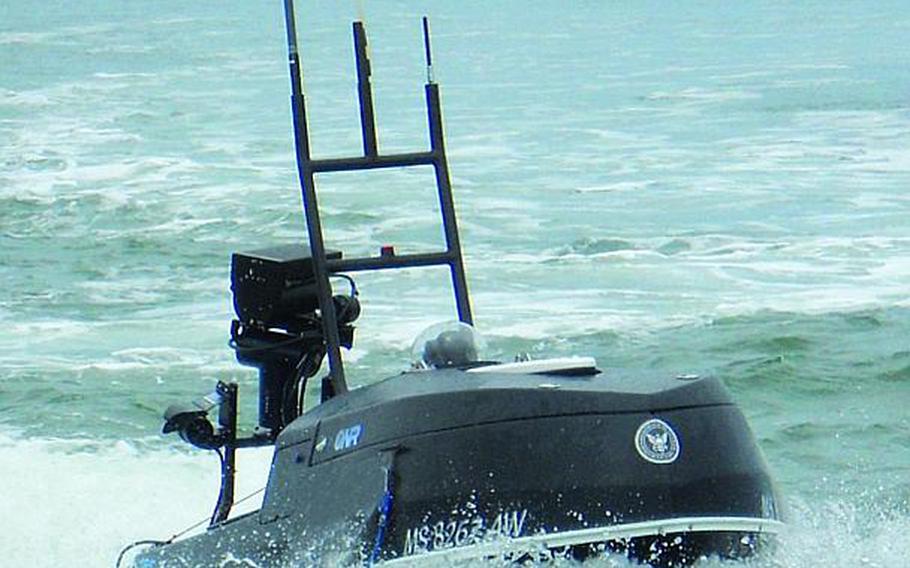
The Office of Naval Research recently conducted tests on the Blackfish, an unmanned, remote-controlled jet ski that developers are hoping could be a cost-effective way for the Navy to better protect its ships in port. Courtesy of QinetiQ North America (Courtesy of QinetiQ North America)
NAPLES, Italy — The Navy recently finished testing a souped-up personal water craft that could become a cost-effective way for the service to keep ships and sailors safe in ports.
The 10-foot-long “Blackfish” recently underwent tests by the Office of Naval Research, spokesman Peter Vietti said. The prototype was developed by defense company QinetiQ and consists of a commercially available water craft, such as a jet ski, that is equipped with sonar, scanners and cameras.
It can patrol an area on its own, or be remotely controlled by a sailor, according to Mark Hewitt, a senior vice president for QinetiQ North America.
The 2000 bombing of the USS Cole in the Yemeni port of Aden, in which 17 sailors were killed when a small boat exploded alongside it, led to new vigilance in ensuring port security.
In the past few years, Hewitt said, there has been concern about possible threats from swimmers.
In 2008, the Office of Naval Research began exploring how to neutralize swimmer threats, and that’s how the Blackfish was born, Hewitt said.
With its preponderance of off-the-shelf, commercially available components, Blackfish may be a cost-effective way for the Navy to address this security issue, he said.
“We didn’t invent jet skis, and we didn’t build this one from scratch,” Hewitt said.
The Blackfish can be remotely operated up to about half a mile away and features a specially built propulsion system, he said.
Aside from port security, the Blackfish concept could also work for vessels operating in waters close to shore, he said, acting as a robotic probe for mother ships.
“On a destroyer or a frigate or a cruiser you don’t have a lot of small boats or sensors you can send out into a complex littoral environment,” Hewitt said.
Hewitt said QinetiQ is also shopping the Blackfish concept to police forces and homeland security agencies.
“In some ways it’s kind of a new idea,” he said.
In a time of cost-cutting by the Pentagon, the Blackfish could also replace the manpower needed to patrol ports in rigid inflatable boats, Hewitt said.
Twitter: @Stripes_GeoffZ